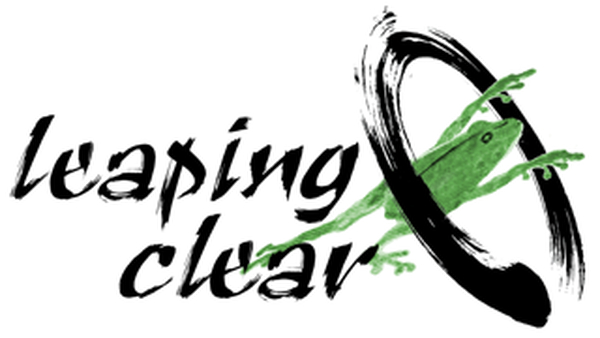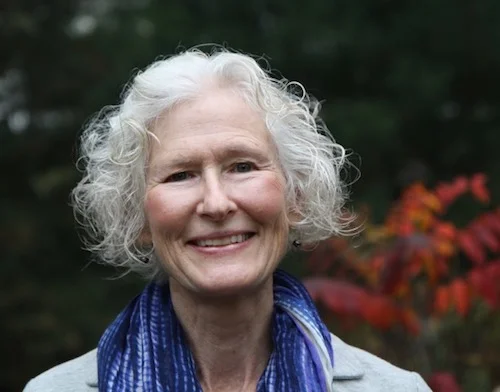Sherry Stratton
Take Me with You
It was July 17, my brother Steve’s birthday. I woke up with the intention to keep him especially with me on this day—all day. That meant paying attention, something Steve was always a champ at. It was lawn-mowing day, and as usual, I did “kick-out” beforehand. But I knew this effort to scare up small critters and urge them into the edges wasn’t fail-safe. Looking down as I pushed the mower, I spotted a slight movement perilously close to the track of the blades. I stopped. It was a tiny toad, about an inch long. I scooped it up, said, “Thanks, Steve,” and deposited it inside the fenced vegetable garden. There’s this thing about toads being good for gardens.
Three days later I was back in the garden enclosure, surveying the successes and failures and the “works in progress.” The zucchini plant I’d bought from yardman David was a puzzle. It looked more like a cucumber plant than a summer squash, with vines wrapping around everything in its path. It wasn’t anything like my bushy yellow squash. And it was spreading to an astounding range. I went for the tape measure and got sixteen feet long by eleven feet wide. That didn’t count the vertical expanse, where it had grown up the tomato cages and back down, nearly strangling two of the tomato plants entwined in its tendrils. Healthy as the plant seemed to be, I didn’t see any fruits on it.
David, whose full-time job was at a native plant nursery, also had his own small plant business. On the side, he did some work for people like me. Each year I was buying more plants from him, and this was the first zucchini. Maybe it was just an unusual variety.
I added more mulch around some of the plants where the coverage was getting skimpy. I have an arrangement with my neighbor whose yard borders the garden. He dumps his grass clippings over the fence in an unplanted corner, giving me a regularly renewed mulch supply. I sent him a message early in the season to thank him and ask him to keep the clippings coming. He answered, “It helps me out, too.” So, a neighborly win-win: the sort of thing that pleases me.
The layers of grass in the pile are varying degrees of damp. And stinky. I’m reminded of Steve saying that the stinkiest thing garbage collectors had to haul was grass clippings. He threw out this factoid knowing it would surprise people, and I’ve repeated it in the same vein. As I knelt down to tuck in some mulch, I saw something rustling. A toad: the same size, same color—dirt color—as the one I’d moved inside the fence on Steve’s birthday. I’m just calling it the same.
David came out to work one day the following weekend. Usually I don’t say much about what needs to be done; he knows far better than I. But this time I told him about the zucchini plant, how it just didn’t seem zucchini-like. First, I was curious to know, was it really a zuke? Maybe its container had been mislabeled. If not, what was it? Also, could he please disentangle it from the tomatoes? I was reluctant to undertake that task for fear of damaging one plant or another. I told him that it was the biggest plant I’d ever had in the vegetable garden, and he laughed. He thought I was exaggerating.
I didn’t see David to talk with him before he left, but when I noticed that his car was gone, I went out to the garden. The area around my mystery plant was tidied up, and now from its stretch of vines I spotted three or four perfectly round, deep-green . . . what? Something beautiful, and definitely not zucchinis. I sent David a text, telling him I now saw that “the giant squash plant” had indeed borne fruit, and had he been able to ID it? He responded: “Buttercup. A very good winter squash. Consider yourself lucky!” And I did feel lucky, unaccountably so. I couldn’t imagine being so happy to have a buttercup squash plant if I’d set out to have it.
It was a story I would have told Steve, for sure. A narrative that fit alongside my stories of things lost, broken, or otherwise beyond me in the time since I became a widow—a time that coincided more or less with when Steve, too, found himself alone again. I thought about my outsized distress over problems I had no idea how to deal with. And, balancing that, the level of joy and gratitude I felt once the fix was in. Whether it was something gone wrong in the physical plant—the house, the yard, the car—or in matters of the heart, Steve was likely involved in finding the resolution.
I thought of the last lines of the poem that he’d left with me, years before illness, with instructions to open the sealed envelope only in the event of his death:
“So take me with you, and move on,
And be what you’re about.”
I guess I’m being what I’m about. How else would I have continued being alive? I asked a grief counselor, “What should I do?” He told me to move—move your arms, move your legs, just move. So I keep moving, even if not moving on. Even as the tiny toad, the squashes of whatever kind, my neighbor on his rider mower—everyone at their best—keeps moving, being what they’re about. And I’m taking my wise and bighearted brother with me every day.
Sherry Stratton
My contemplative practices and influences are a wildly ranging jumble. I try to stay attuned for wisdom and beauty from every-day or unlikely sources. I’m grounded by reading and hearing poetry, by listening to music (singing along at top volume in the car), by removing vehicle-struck creatures from the roadway. I have a Zen awareness practice, informed most closely by the teachings of Cheri Huber. My practice is sometimes spotty, yet I never forget it. Likewise, my church upbringing remains a part of me: singing in choir from the age of nine—loving the pomp of our procession into the sanctuary as much as the music. Recently I’ve returned to my years-ago practice of yoga. But my most reliable spiritual connecting comes from simply walking, preferably in nature. That can mean my back yard or the streets in the neighborhood, though I usually go to the nearby forest preserve. When weather forces the issue, the track at the gym will do.
After a career in technical writing, Sherry Stratton has focused on the subjects closest to her heart. Her work has been published on the City Creatures Blog of the Center for Humans and Nature and in the anthology Songs of Ourselves: America’s Interior Landscape (2015). Her writing has also appeared in Punctuate, Bird’s Thumb, Portage, Snowy Egret, and elsewhere. Sherry is copy editor for Fifth Wednesday Journal and editor of DuPage Sierran. She lives at the edge of a forest preserve in northeastern Illinois.
More on Sherry Stratton’s work can be found on our Links page.

